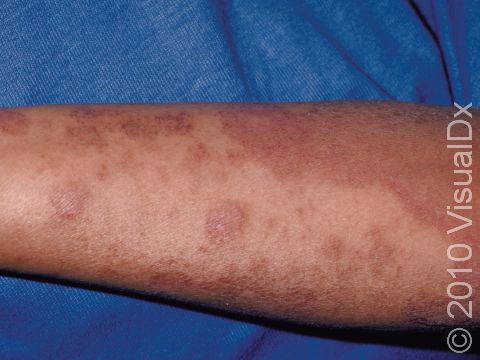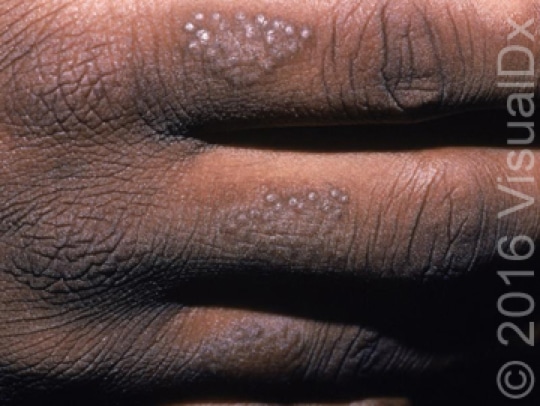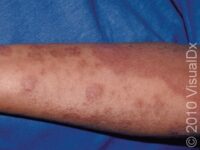
Eczema is one of the most common skin conditions seen by dermatologists. The term eczema is broad and covers a variety of conditions that share some similar features. Eczema is synonymous with dermatitis, and the word dermatitis can be understood through its two roots: “derm,” which refers to the skin, and “-itis,” which refers to inflammation. Therefore, eczema, or dermatitis, means inflammation of the skin. This inflammation can present in any number of ways, but some of the most common features of eczema are itchiness, redness, and rash. There are several major classes of eczema, but the one I want to explore with you today is atopic dermatitis.
Without further ado, here are five things that every patient should know about atopic dermatitis:
1. What is atopic dermatitis?
Atopic dermatitis is an inflammatory skin condition that affects up to 10% of the population.1 The word atopic means allergic, so atopic dermatitis can be thought of as our skin overreacting to some sort of allergic trigger. This overreaction can present as a rash with several features such as redness, blistering, itchiness, dryness, and thickening of the skin.
2. What causes atopic dermatitis?
The underlying pathophysiology behind atopic dermatitis is very complex, and researchers are still trying to work out some of the exact mechanisms, but the current belief is that genetics, environmental exposures, and a person’s immune system play important roles in the development of atopic dermatitis. This means that the genes you inherit make you more or less likely to develop atopic dermatitis, and then the environmental factors to which you are exposed, as well as the way in which your immune system responds to those factors, determine whether you will go on to develop atopic dermatitis.
3. Who gets atopic dermatitis?
Anyone can develop atopic dermatitis, but there are factors that make it much more likely! Dermatologists often find that atopic dermatitis affects multiple members in a family, and research has shown that a family history of eczema increases the likelihood that a person will develop atopic dermatitis. Another risk factor for atopic dermatitis is having a personal or family history of other atopic disorders such as asthma or seasonal allergies (allergic rhinitis). These three conditions, atopic dermatitis, asthma, and allergic rhinitis, present together so frequently that they have come to be known as the atopic triad.
4. When do people get atopic dermatitis?
Atopic dermatitis is common among the general population, but its peak age of onset is during childhood. Up to 13% of children will develop atopic dermatitis,1 with 90% being diagnosed before the age of 5 years.2 For some patients, atopic dermatitis will go away with time, but roughly half of patients will continue to have signs and symptoms as an adult.
5. Can atopic dermatitis be treated?
Yes, dermatologists have many tools with which they can treat atopic dermatitis. Treatment plans vary based on the individual case and the patient’s preferences. In general, treatments tend to be aimed at reducing inflammation, keeping skin moisturized, controlling itch, and avoiding triggers when possible.
Self Care – There are also some self-care guidelines to follow for eczema sufferers.
- Moisturizing skin-care routines are important.
- Use a non-soap cleanser like Cetaphil or a moisturizing soap like Dove.
- Thick moisturizers like petroleum jelly should be applied to damps skin after daily bathing.
- Try to avoid heat, humidity, detergents, itchy clothing, chemicals, smoke and stress.
- Use a humidifier to keep your home from getting too dry.
For more pictures and treatment options for eczema, click here.
References
1. Silverberg, JI. Public health burden and epidemiology of atopic dermatitis. Dermatol Clin. 2017;35(3):283-289.
2. Atopic dermatitis. American Academy of Dermatology website. https://www.aad.org/public/diseases/eczema/atopic-dermatitis. Accessed April 8, 2018.
Michael Ryan is a medical student at the University of Texas Medical Branch interested in dermatology. He enjoys working as a medical volunteer and giving presentations at local schools about sun protection.
Last modified on December 9th, 2022 at 9:14 pm


